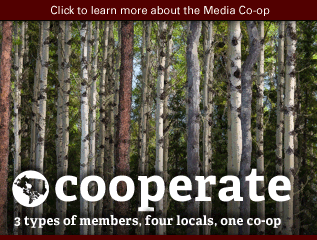False hopes undermine true possibilities.
The most important political lesson from our own recent past is to appreciate the potential from below while honestly acknowledging that - as a legacy of past failures - we aren’t yet in a position to ‘win’. The collective challenge is how to build the kind of movement that can expand our options in the future. That obviously includes continuing to expand what we’ve been doing and addressing the sometimes uncomfortable task of developing deeper connections across our fragmented movements.
But it also means – and this is where we haven’t actually gone very far - that we need to start thinking strategically about a new layer of politics that goes beyond each of our projects. Among other things, this will also affect how each of our separate movements function. Put more directly, I think we need to more seriously educate ourselves about the whole - capitalism - and ask what taking it on really means.
It’s only in that context that we can think about where specific responses like elections fit in. How do we defend ourselves/the environment now (without which no movement can be built), while also building towards transforming the system (without which we remain on the treadmill of at best sporadic and temporary victories)?





















